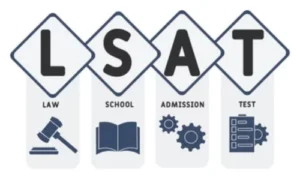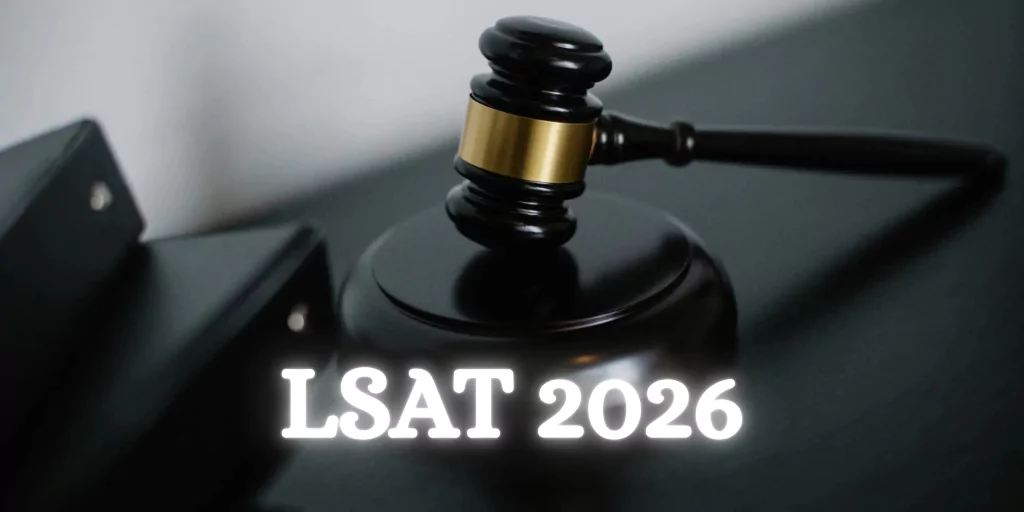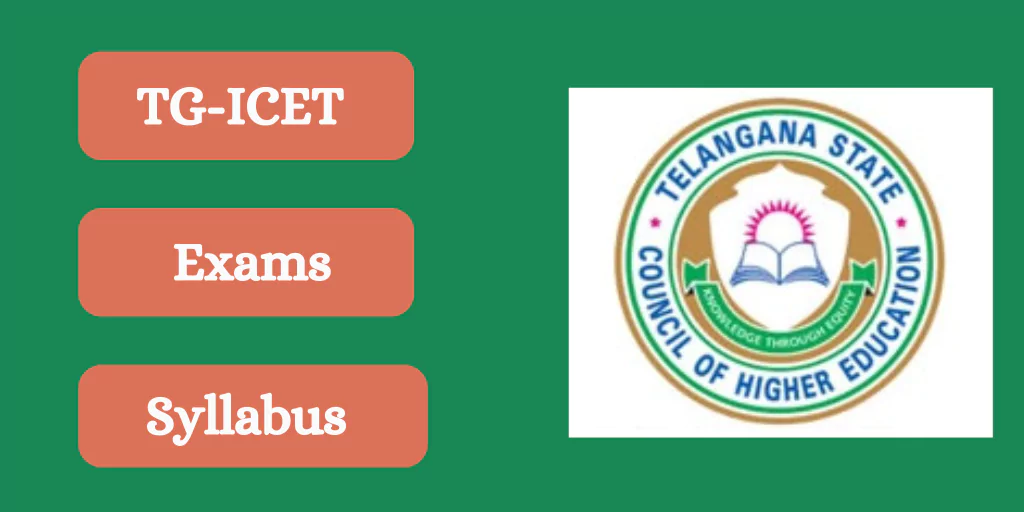If you wish to attend law school in 2026 (in the United States, Canada, or any jurisdiction that accepts the LSAT), you must first comprehend the Law School Admission Test (LSAT). The LSAT has changed in recent years, both structurally and in terms of scoring, making it more vital than ever to keep current. This guide will bring you through the entire process, including test format, dates, registration, preparation tactics, and performance-boosting ideas.
Also See: Graduate Management Admission Test
1. What Is the LSAT?

The LSAT (Law School Admission Test) is a standardised examination given by the Law School Admission Council (LSAC). Most law schools in the United States and Canada use it as a major factor in admissions choices.
The examination assesses important skills.
- Reading comprehension
- Logical reasoning.
- Analytical ability (historically via logic games, though the format is evolving)
- Written argumentation.
Your LSAT score indicates to law schools how well you can handle hard legal thinking.
2. Key Changes & What to Expect in 2026

Removal of Logic Games / Analytical Reasoning
One of the most recent revisions is that of August 2024; the analytical reasoning (“logic games”) portion will be deleted and replaced by a second logical reasoning component.
Hence, under the new structure, the LSAT will typically include:
- Two Logical Reasoning sections
- One Reading Comprehension section
- One Experimental (unscored) section
- A separate Writing Sample (in many administrations)
The Writing Sample is frequently unscored (or not directly reflected in your numeric LSAT score), but it is forwarded to law schools as part of your application.
Because these changes are recent and significant, planning with the new format in mind will be critical to success.
3. LSAT 2026 Test Dates & Deadlines

The following are the important LSAT dates and deadlines for the 2025-2026 cycle (which apply to people taking the LSAT in 2026):
LSAT 2026 Test Dates and Deadlines
| Administration | Test Dates | Registration Deadline | Score Release Date |
|---|---|---|---|
| January 2026 | January 7, 8, 9, 10, 2026 | November 28, 2025 | January 28, 2026 |
| February 2026 | February 6–7, 2026 | December 23, 2025 | February 25, 2026 |
| April 2026 | April 9–11, 2026 | February 26, 2026 | April 29, 2026 |
| June 2026 | June 3–6, 2026 | April 21, 2026 | June 24, 2026 |
Make sure to check the official LSAC website for all deadlines, since they may differ by location. Typically, the registration deadline also marks the final day to request refunds, disability accommodations, or changes to the test date.
4. Eligibility & Registration

Eligibility
The LSAT has no strict eligibility requirements (such as age or prior degree). Individual law schools typically set their own standards.
However, law schools frequently require:
- For JD / LLB (for graduate-entry law programs), completion of an undergraduate degree
- For integrated law programs (if available in your country): Successful completion of secondary education
- Check the admissions pages of the law schools you’re interested in to see if they have any specific criteria.
Registration and Fees
- You register using the LSAC website (JD/LSAT portal).
- You will have to pay the registration fee.
5. Which Law Schools Accept LSAT?

The LSAT is widely accepted in law schools across the United States, Canada, and many other countries. Some international colleges also accept it, particularly in cooperative or comparative legal programs.
If you want to attend law school in India (or elsewhere), keep in mind that many Indian law schools use CLAT, AILET, or other national entry exams instead of the LSAT. However, certain private law schools in India have recently started accepting LSAT-India.
FAQs
Q: How many times can I take the LSAT?
A: Under current rules, you cannot exceed 5 times in 5 years (and no more than 7 in a lifetime), with some exceptions.
Q: Does the writing sample count toward my score?
A: Usually, no — the writing portion is sent to law schools separately and not factored into your numerical score.
Q: Will older LSAT practice materials be useful, given the format change?
A: They may have limited usefulness, especially for logical reasoning, but avoid using ones with the old logic games sections as your main sources. Always prioritise the update format.
Q: Can my LSAT score be used for multiple application cycles?
A: Typically, an LSAT score is valid for a certain period (often one or two admission cycles), but policies vary by law school. Check individual institutions.
Conclusion
The LSAT 2026 cycle has both obstacles and opportunities. The absence of logic games shifts the test’s emphasis toward logical reasoning and reading comprehension, necessitating a strategic adjustment in preparation. Begin early, practice wisely, track your progress, and imitate real testing settings frequently.






